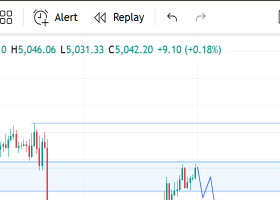
Coinbase announces accredited insurance covering the bitcoins it holds online at any time
Coinbase dropped a bombshell on the bitcoin world by revealing that not only are its bitcoin deposits insured, but they have been so for more than a year. This after months of competitors listing insurance as a differentiating feature. The company wrote in a blog post:
We’re proud to publicly announce that Coinbase holds insurance against theft or loss of its bitcoin. We’ve been insured for almost a year, but given the recent claims of insurance in the industry, thought it was appropriate to tell our users about it. Our users, of course, won’t be charged for this insurance.
While Coinbase’s latest announcement is undeniably good news, the details of the insurance protection demand further analysis. First, the company specifies that it is insured against “losses due to breaches in physical or cyber security, accidental loss, and employee theft,” by not “bitcoin lost or stolen as a result of an individual user’s negligence.” Fair enough.
Coinbase likely holds just three to five percent of all deposits in it online wallet at any time, which means that 95 to 97 percent of all deposits would be uninsured. But is this a bad thing? The answer to that question depends on the reliability of the company’s security procedures pertaining to its offline storage and the faith that consumers have in Coinbase to make them whole should something go wrong.
Surely, the most vulnerable portion of any bitcoin company’s assets are those which are connected to the internet, and thereby subject to remote attacks. The prospect of locating and then breaching the security of an offline storage facility is far more demanding of a task, but it’s not impossible. Mt. Gox, for example, lost deposits in both its hot wallet and cold storage, but we do not yet know if that was a result of incompetence, fraud, or simply an impressive feat of hacking. Had Mt. Gox’s online deposits been ensured at the time of its security breach, the exchange would have still lost more than 800,000 uninsured bitcoin, worth several hundred million dollars.
The challenge with securing and insuring offline deposits is that they are very difficult to monitor in real-time, and will require regular manual audits to verify their existence. It’s little surprise that insurers are not yet comfortable with this arrangement, given the nascency of crypto-currencies. In fact, the only precedent is the Mt. Gox fiasco, a memory that is sure to give any underwriter nightmares.
Coinbase goes out of its way to compare its newly revealed insurance coverage with that of its (unnamed) competitors. Not surprisingly, the company believes that it comes out ahead, writing:
Some bitcoin wallets may claim to be “fully insured” while not working with accredited carriers or outright self-insuring. Others may be able to claim “fully insured” at the moment because their number of bitcoin stored are so low that a small insurance policy happens to cover everything until they grow.
The good news for consumers with regard to all three companies is that each is heavily funded – Coinbase has raised $32 million, Xapo $40 million, and Circle $26 million – backed by top tier investors, and led by capable and well-respected founders. None of this is a guarantee against weak security measures or rogue employees, but as far as recipes for trust go, you couldn’t ask for much more in the startup world.
Each of these companies has made major progress toward lowering the barriers to entry for new bitcoin users, including through offering familiar and approachable user experience designs. Insurance is the next key piece of this jigsaw puzzle. For sure, some insurance is better than no insurance, and Coinbase’s coverage appears as legitimate as any in the ecosystem today. There remains room for improvement across the board, but the bottom line is consumers should have more peace of mind, not less, as a result of today’s announcement.


